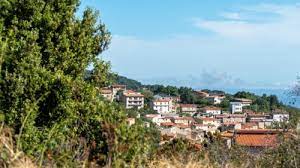Italy: This island is luring digital nomads with 3 months free rent

Rome: A village on the Italian island of Sardinia has launched a scheme to entice remote workers to live there.
This week, it welcomed the first digital nomad to participate in the project. Clarese Partis, a 39-year-old software designer from Los Angeles, will live in the settlement rent-free.
Ollolai is a village located in wild central Sardinia with sun-drenched piazzas and a jumble of terracotta-roofed houses surrounded by a wooded valley. But like many small Italian towns, it has been suffering from depopulation and a stagnant economy.
Over the last 100 years, the number of inhabitants has dwindled from 2,250 to 1,300 people. Lying far from the coastline, it doesn’t benefit from the tourists flocking to the island’s pristine beaches.
Over the last few years, many rural Italian towns have chosen to sell off houses for €1 ($1.10) to lure new residents—and Ollolai gave it a go. “That was a major success—many foreigners bought and restyled dozens of forsaken dwellings,” mayor Francesco Columbu told CNBC.
This year, authorities decided to take advantage of the ever-popular trend of remote working to boost their community. Dubbed “Work from Ollolai,” the scheme will see €20,000 invested into turning the town into a digital nomad hub. Over the next two years, Ollolai will host digital nomads one at a time for a period of up to three months—the maximum stay for non-Europeans without a visa.
Passport: Explore the finest destinations and experiences around the world in the Forbes Passport newsletter.
By signing up, you accept and agree to our Terms of Service (including the class action waiver and arbitration provisions), and Privacy Statement.
Partis arrived on the island last week to begin her adventure in Ollolai. Initially, she plans to stay for a month but may prolong her stay.
“I felt I needed a change of place,” she told CNBC, but “not a touristy one, but surrounded by nature, fresh air, mountains, beautiful beaches, where I could find more solace, peace and a slower-paced lifestyle.” She said she enjoys visiting the farmers’ market for fresh ingredients like truffles.
Remote workers like Partis will stay in houses once occupied by farmers and shepherds who would have slept on the floor accompanied by their animals. The dwellings have been transformed for the digital nomads with an office and a high-speed internet connection.
Participants in the scheme have very few expenses. They don’t pay rent, utility bills or municipal service taxes, although they do have to fund their transport and airfare.
If you’re a remote worker and fancy switching up your life for a few months, you need to apply online to Ollolai’s scheme before the end of December. The free stay comes with a small catch.
“This is not a free holiday,” said Veronica Matta, head of local cultural association Sa Mata that manages the “Work from Ollolai” program. “[Workers] must have a proven background as a digital nomad and leave a concrete piece of work at the end of their stay—be it a conference, an essay, research paper or documentary,” she told CNBC.
“Professional remote workers from all fields are encouraged to apply: technology, media, finance, real estate, architecture—also artists, writers, musicians, scientists and academics.” All participants have to do is agree to leave behind a “knowledge jolt” that enriches the town’s culture, Matta said.





